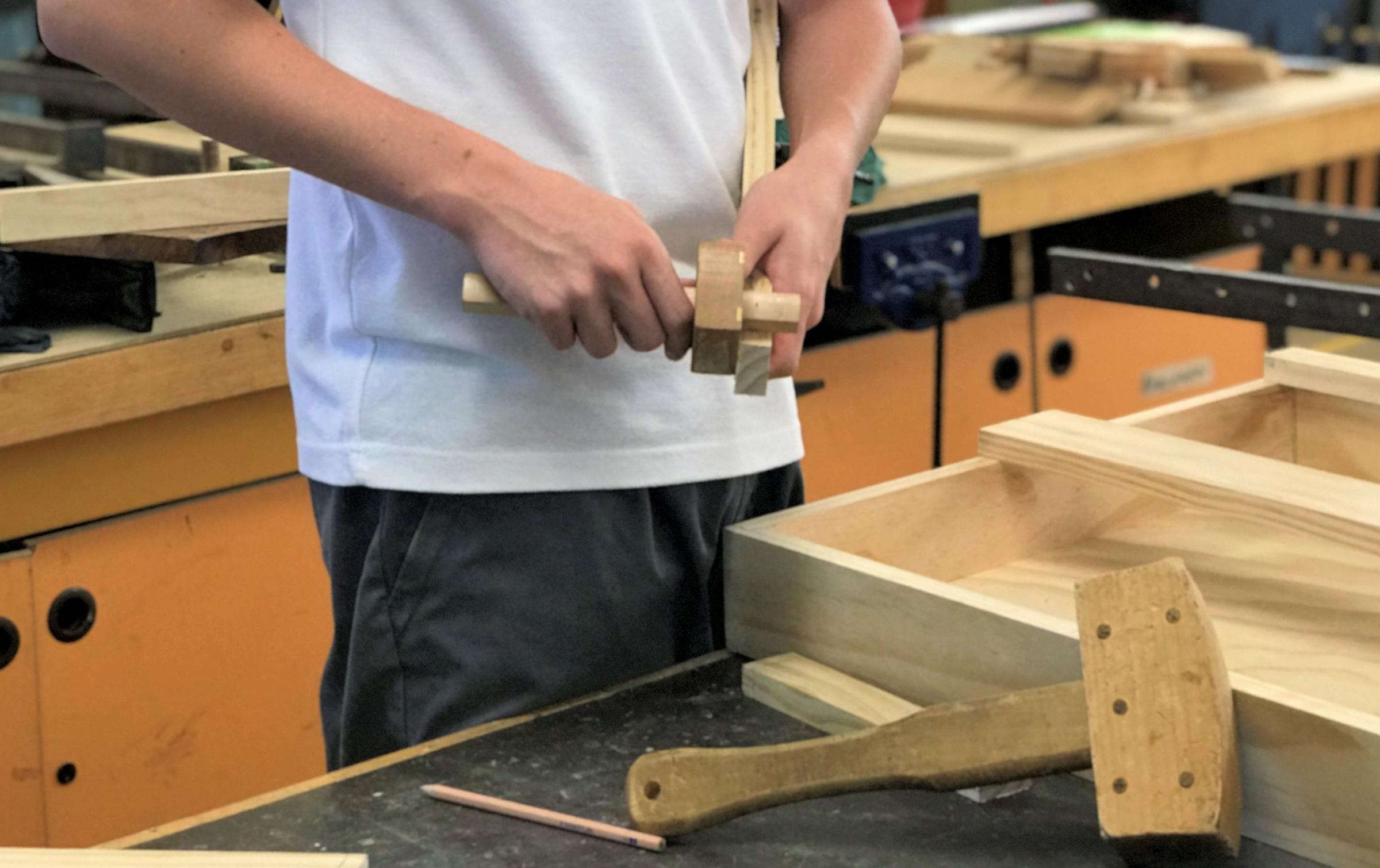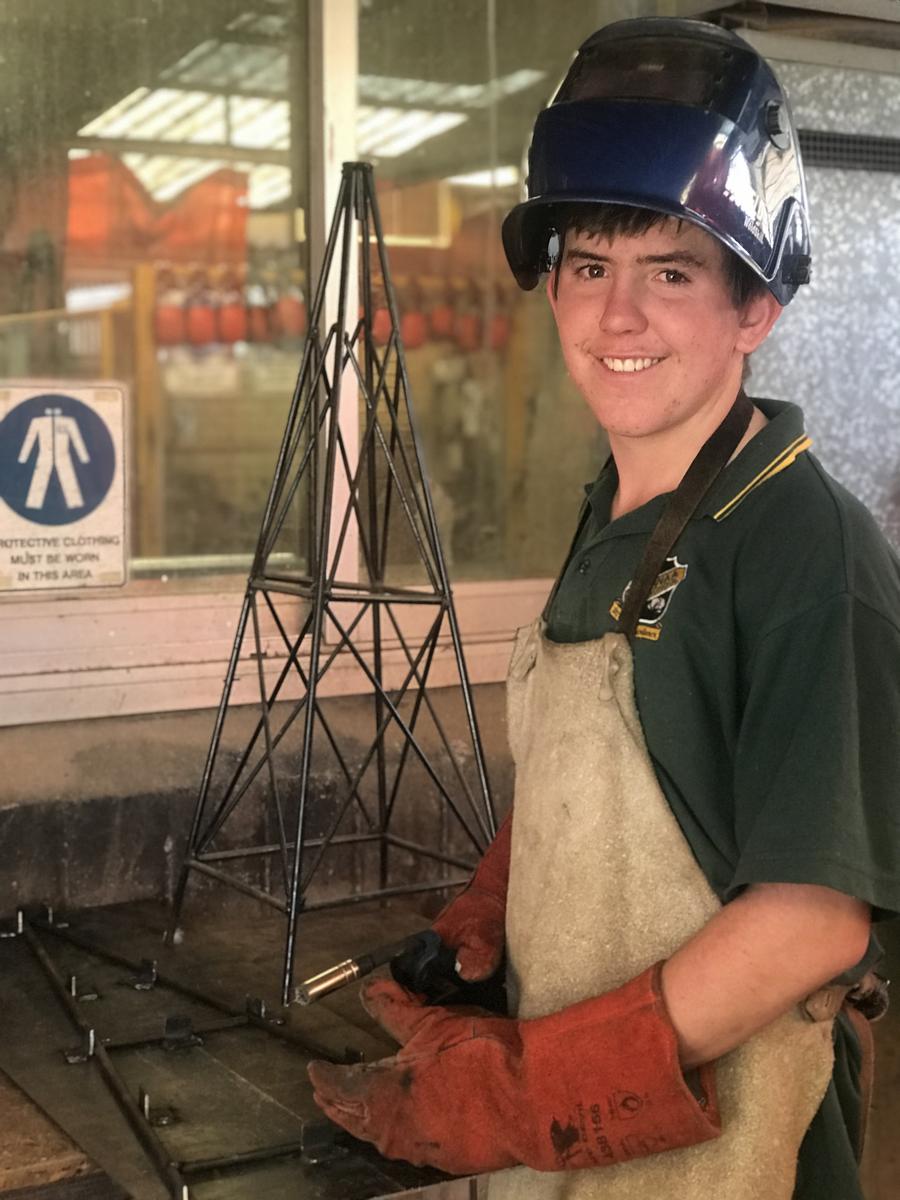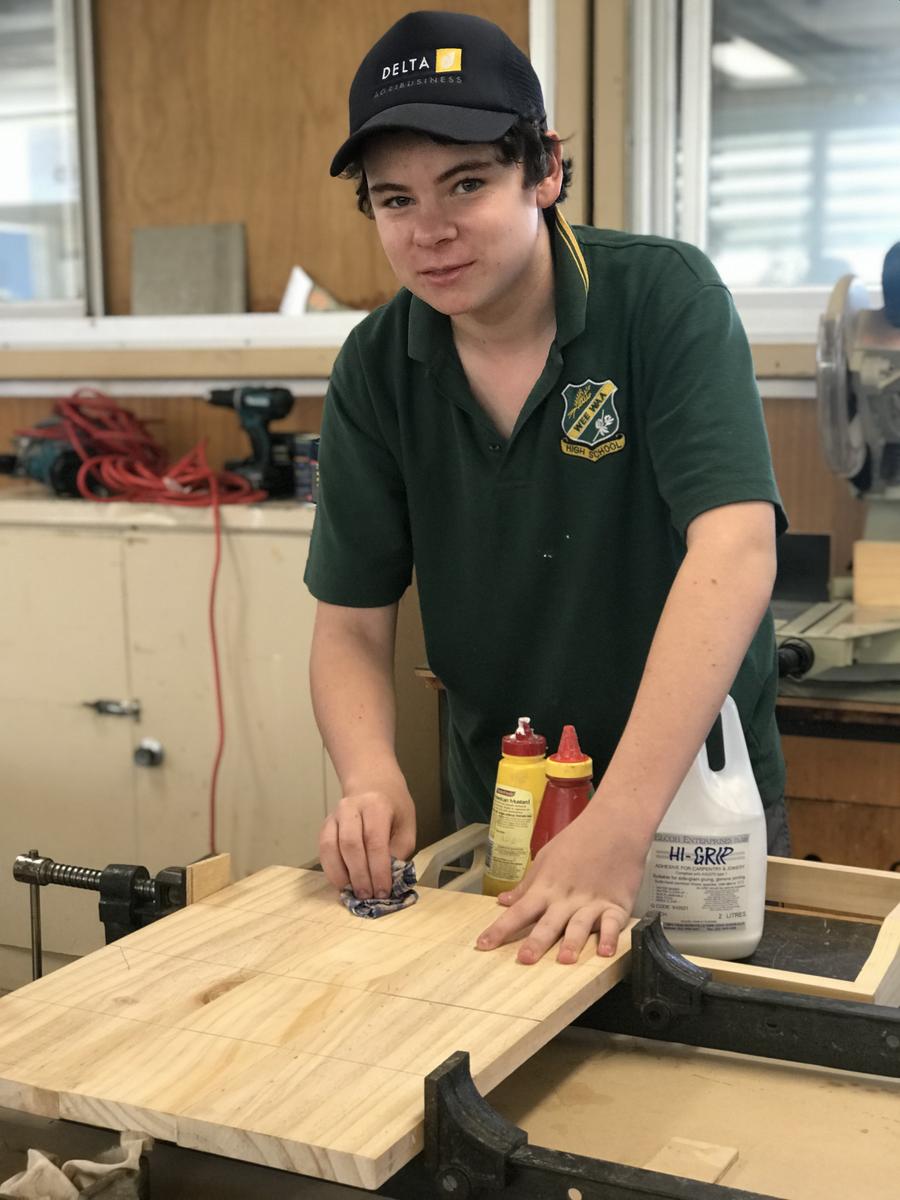Industrial Technology

Built to Last
Good craftsmanship comes from great design and assembly and it’s these fundamentals that Years 9 and 10 Industrial Technology - Timber and Metal classes have been focusing on under the guidance of their teacher, Mr Steve Druce.
Metal
The Year 9 Metal class have been learning and developing early foundation skills such as welding and assembly. ‘It’s about the process’, explained Mr Druce. ‘Learning how to measure accurately and marking out the metal pieces in preparation for cutting and welding. The importance of double checking your measurements and then learning how to set up the welder in order to produce a quality weld’.
‘The students spend a good amount of time practicing in order to refine their welding skills'. To put theory into practice, the budding Year 9 metalsmiths are creating a decorative metal hooped rubbish bin, while Year 10 are constructing an ornamental windmill; a more technically demanding piece. These windmills are dotted around the local community in gardens, a lasting legacy of Mr Druce’s previous students.
Timber
As part of foundation skills development, Year 9 are making breakfast trays. Attractive and functional pieces that require students to learn simple joint making techniques and the ability to select the most appropriate joint for a particular situation.
Year 10 are close to completing a timber stool that has required the creation of mortise and tenon joints. These joints are more difficult, involve more steps and a higher level of accuracy with each cut.
Building the stool has also involved learning to operate new machinery such as abiscuit cutter and router. Finishing off the stool involves detailed sanding and lacquering, requiring further skills development.
‘With all of the practical projects I select for students to work on, front of mind for me is functionality and that the piece is likely to be used by students. Creating something they are proud to take home is important’.
'In the second half of the year students will be focusing more on the design process where they will be coming up with a problem and designing a solution', explained Mr Druce.
‘It’s very satisfying for me to see the increase in skills, knowledge and ability. I think this feeds through from having high expectations around learning outcomes, from Year 7 onwards'.
‘Helping my students to develop highly practical skills that can assist them in securing a job in the future or simply enabling them to enjoy working with metal and timber as a hobby is very rewarding'.


